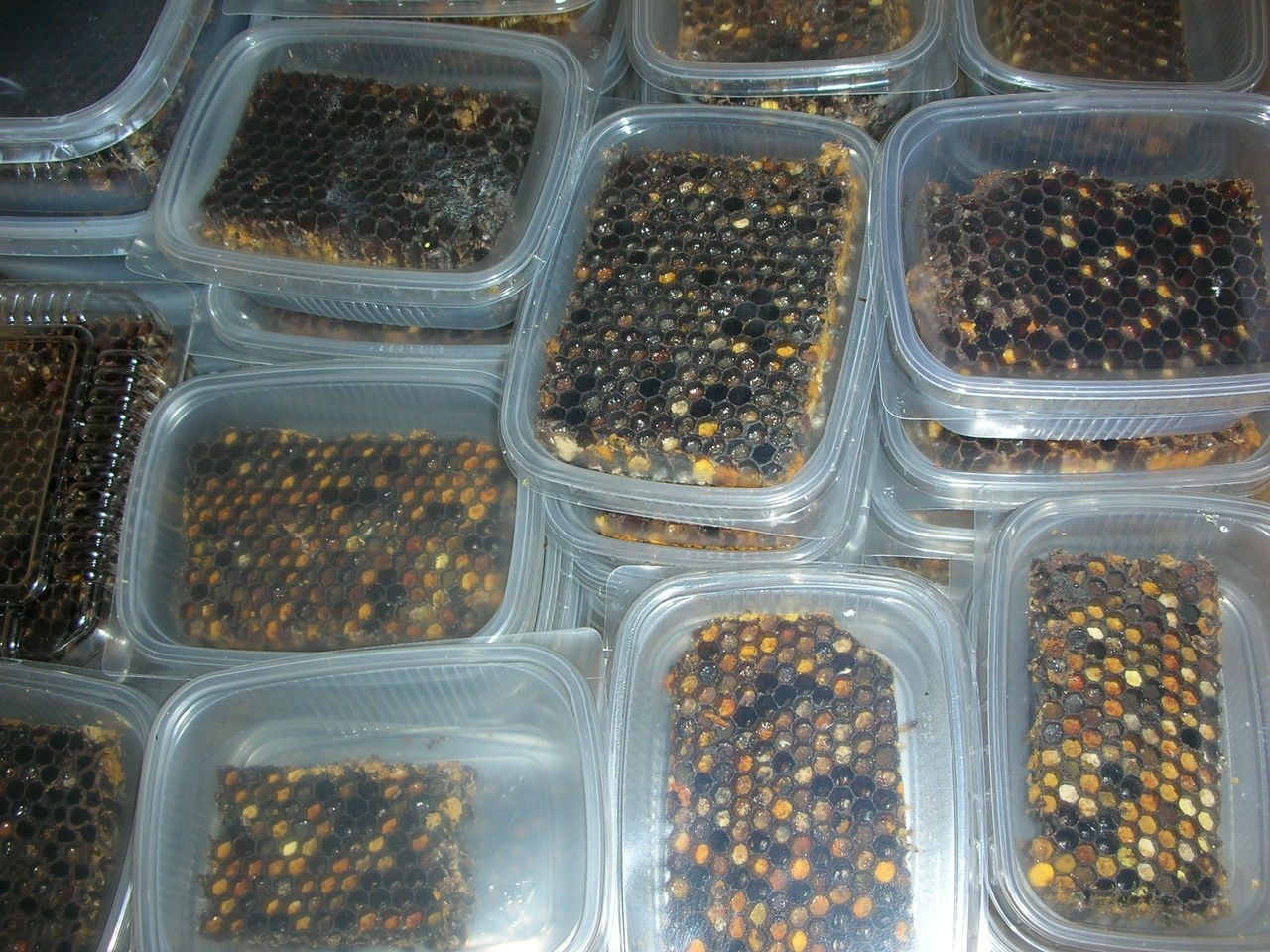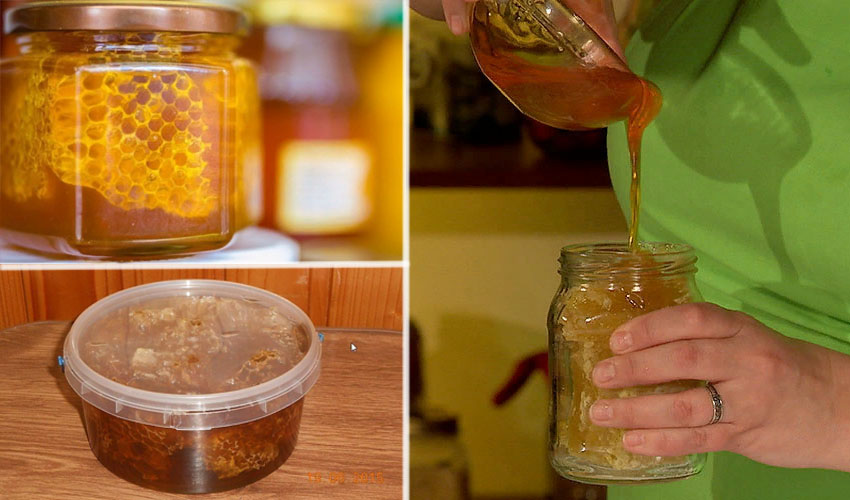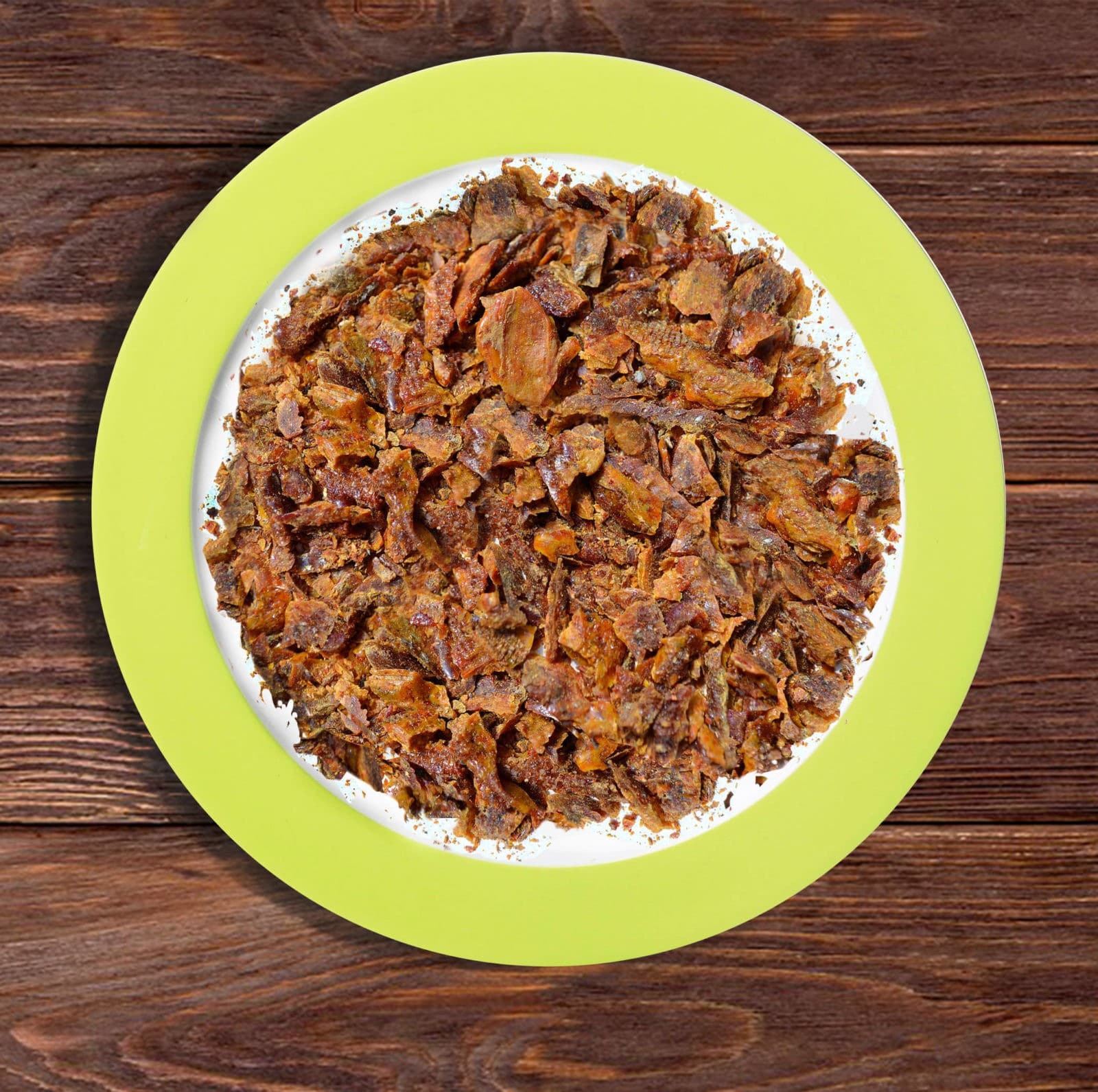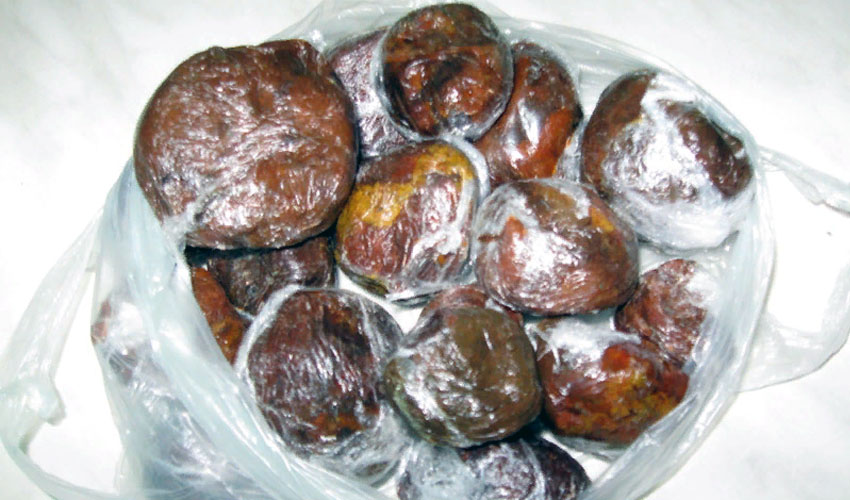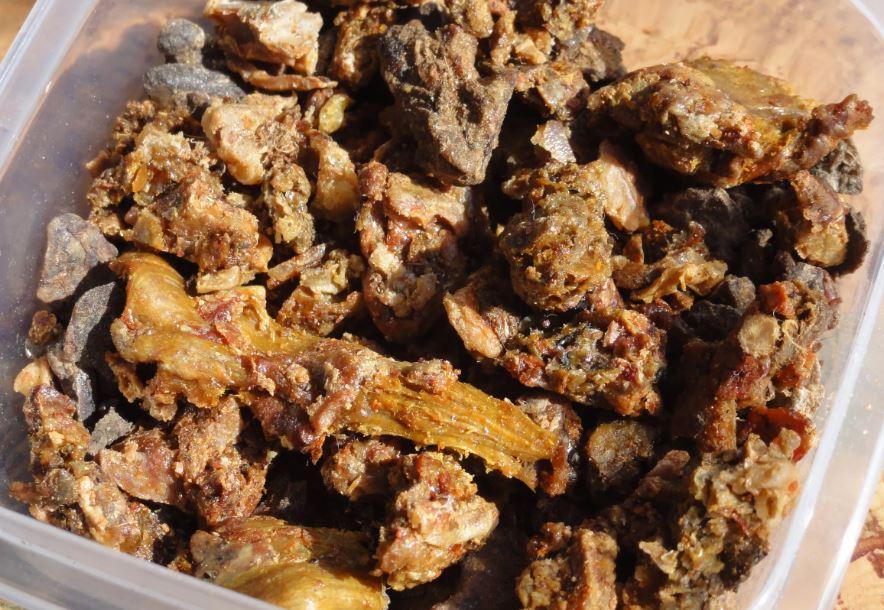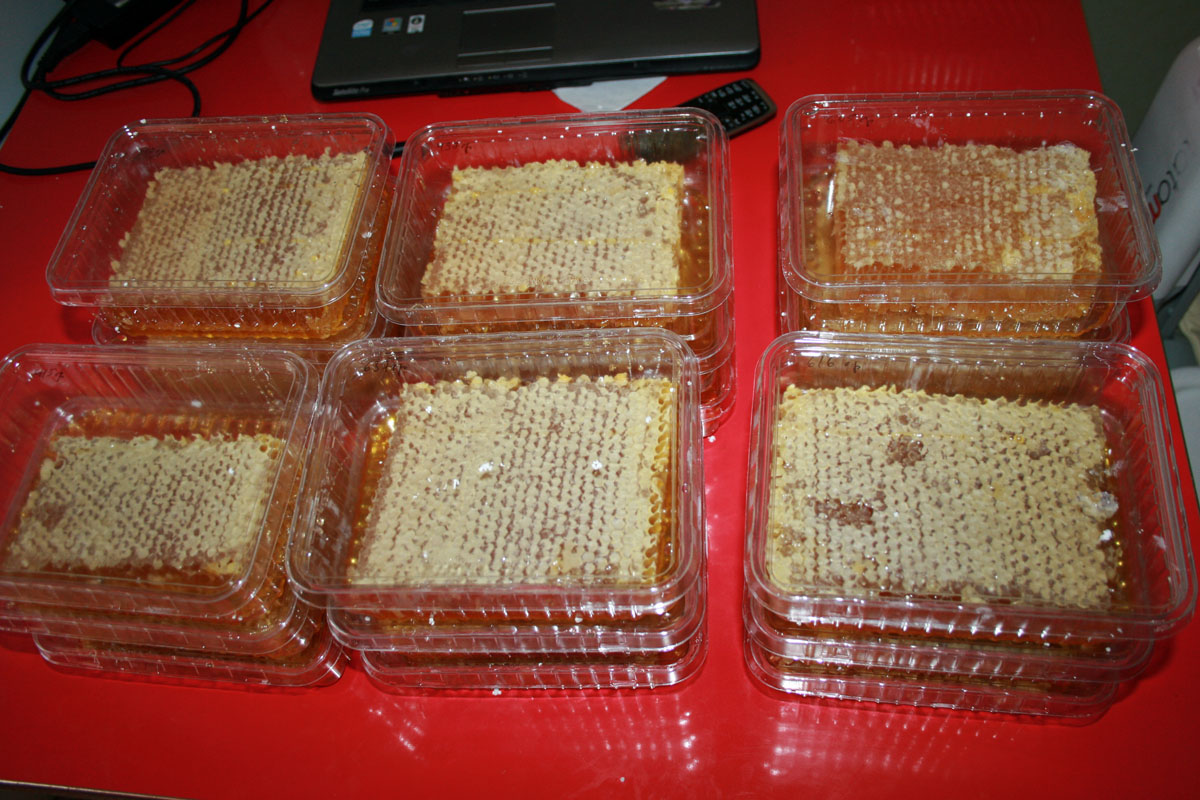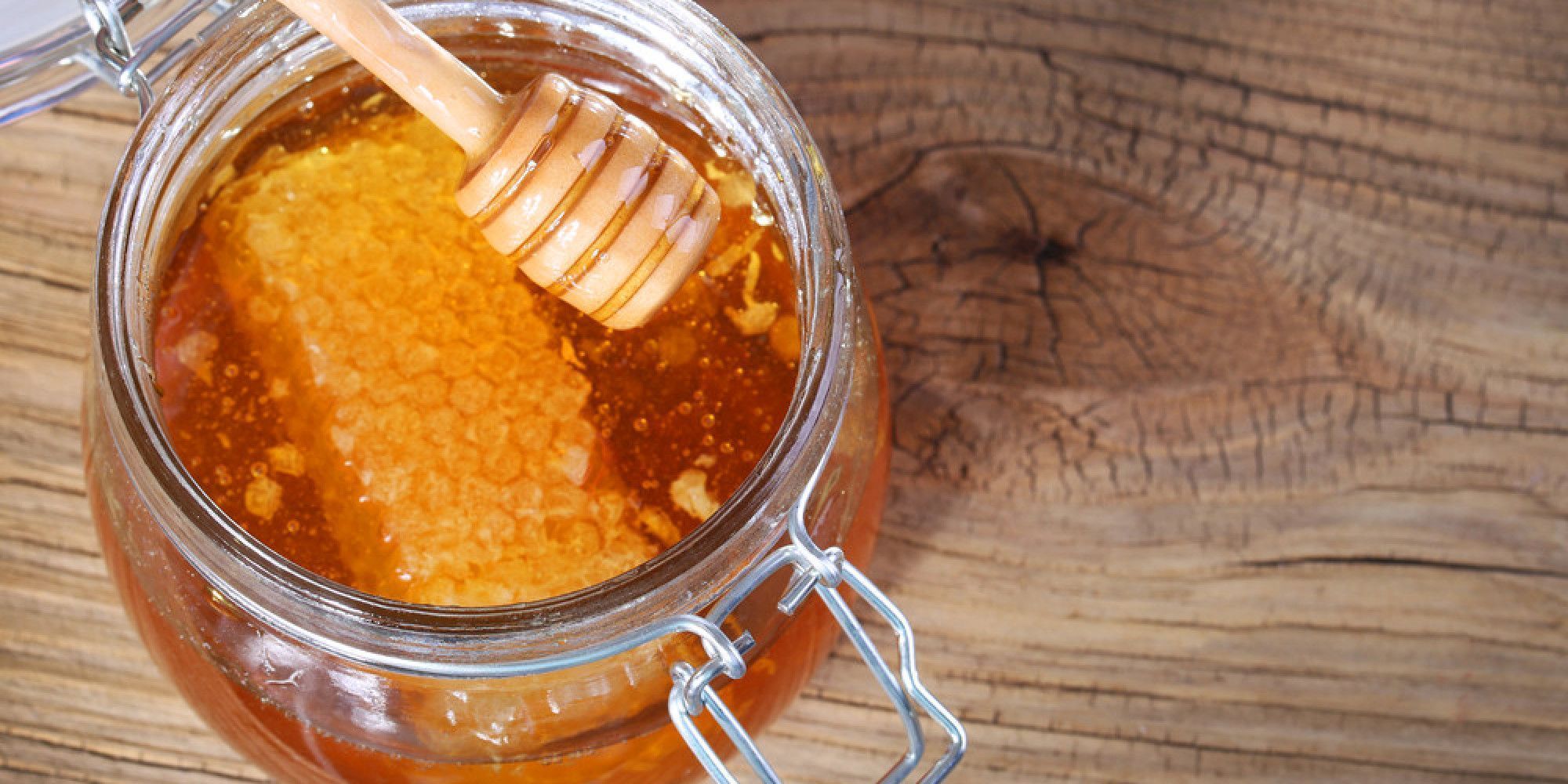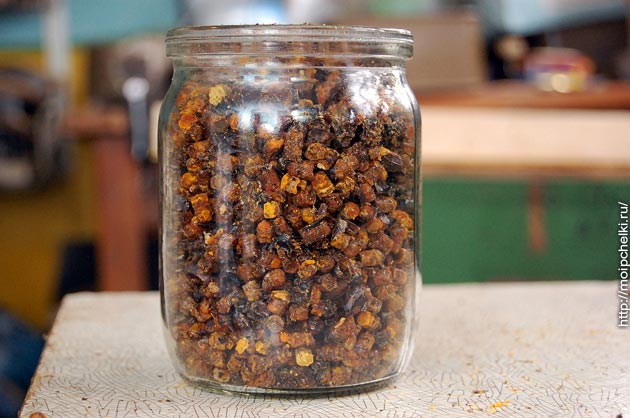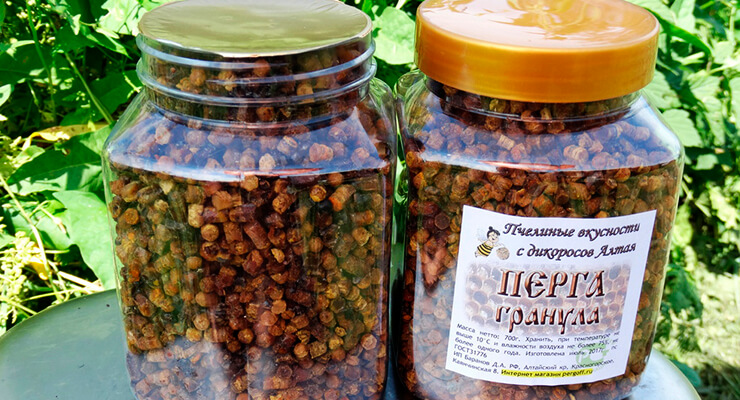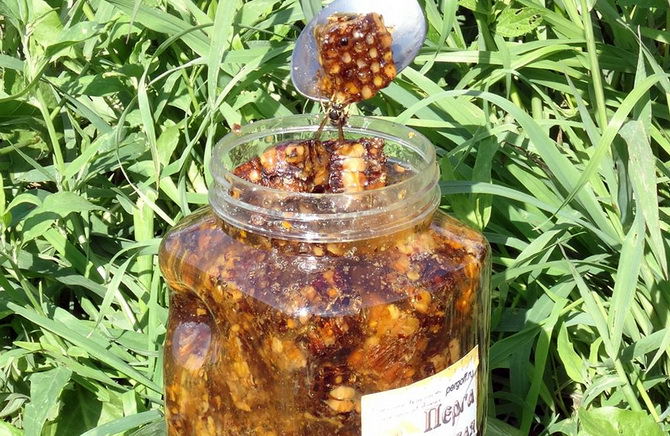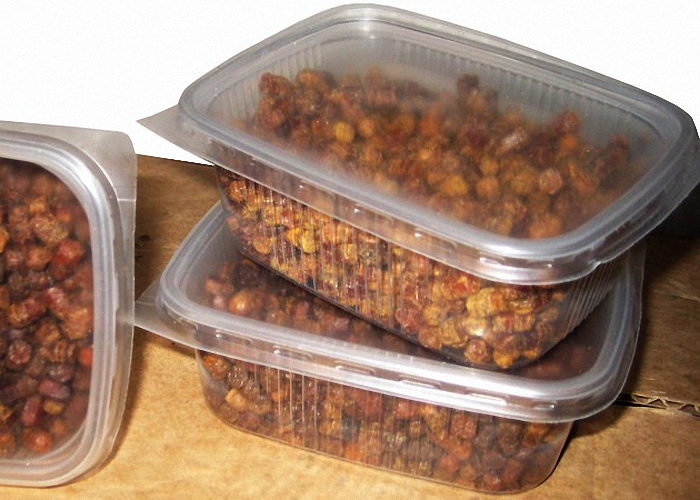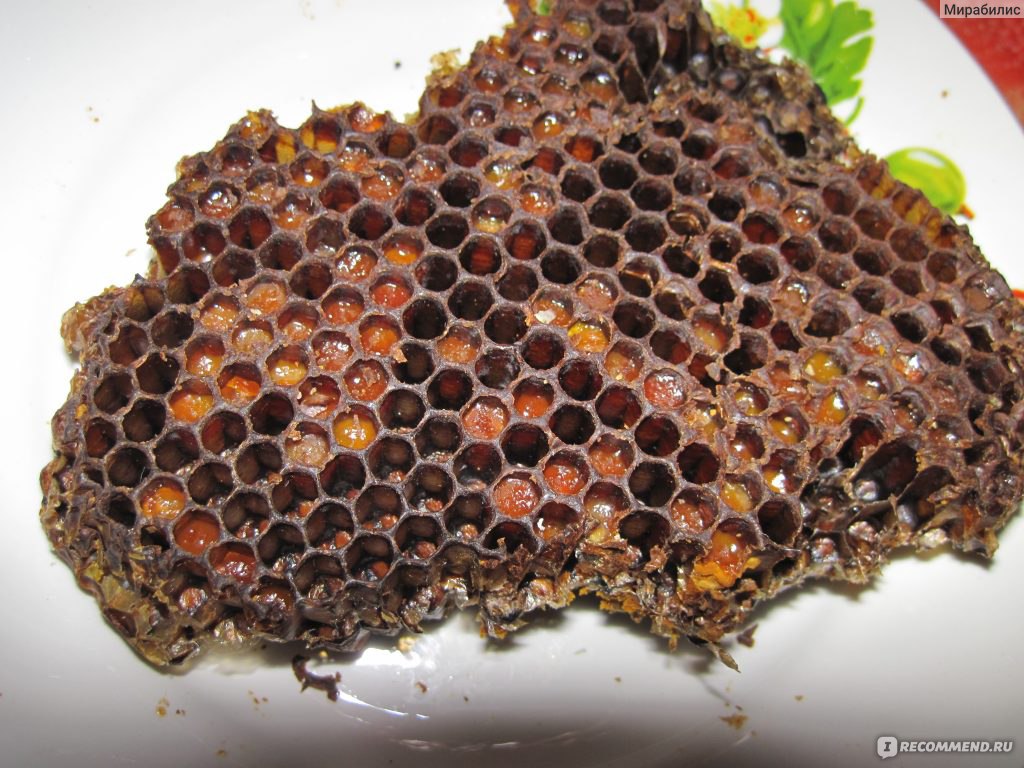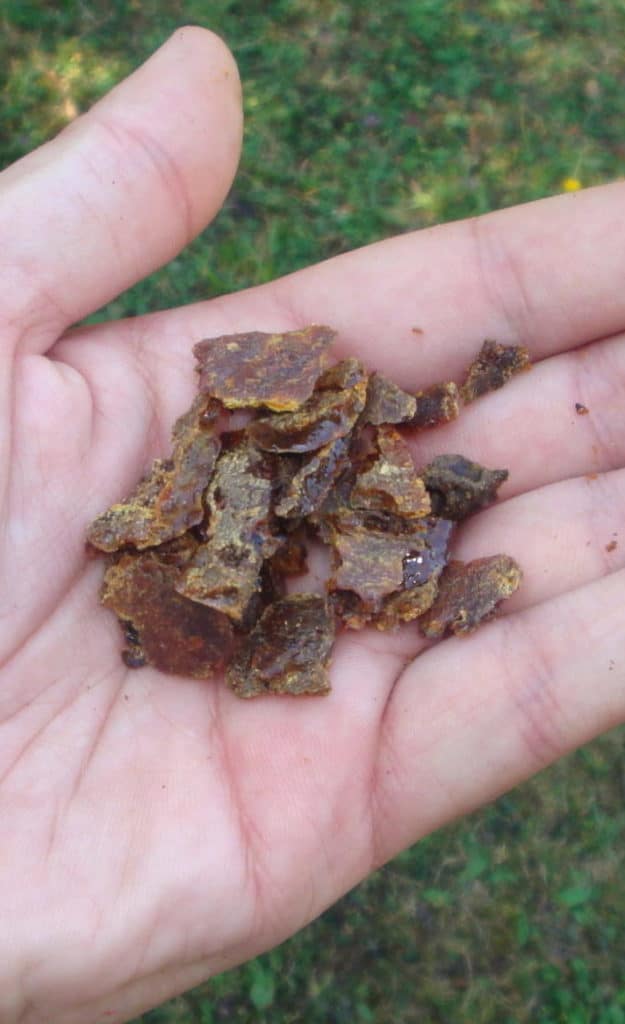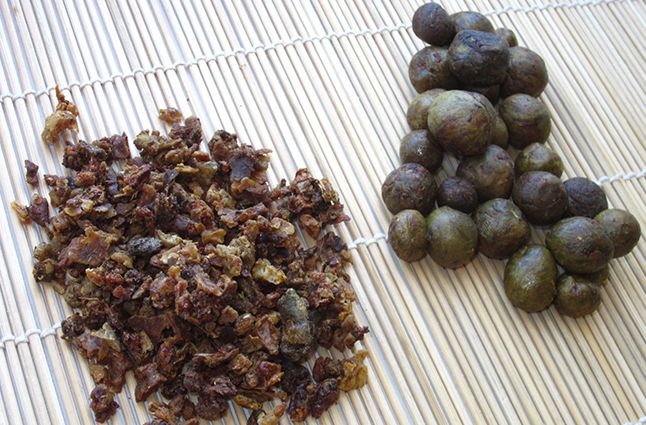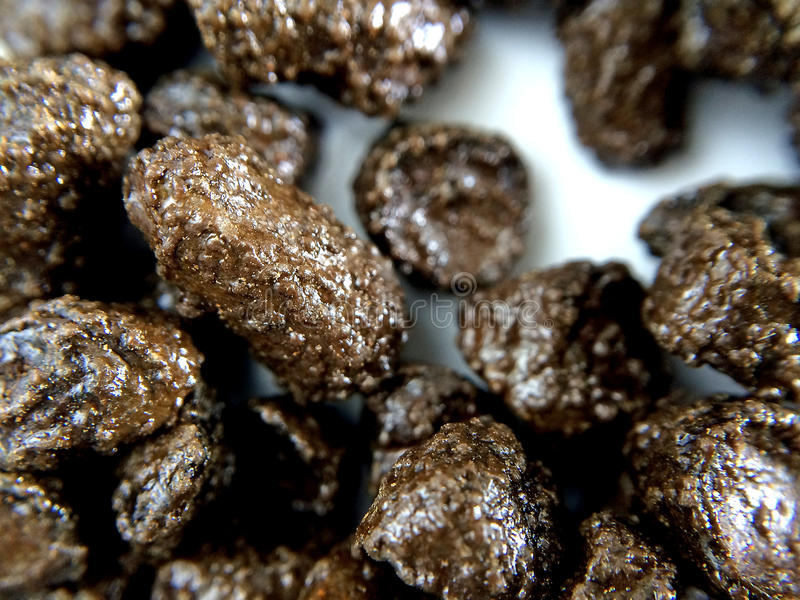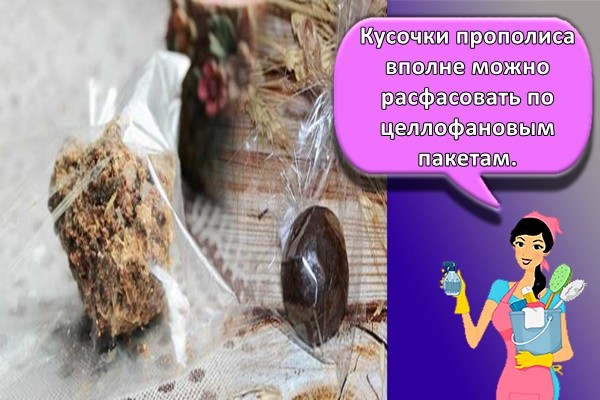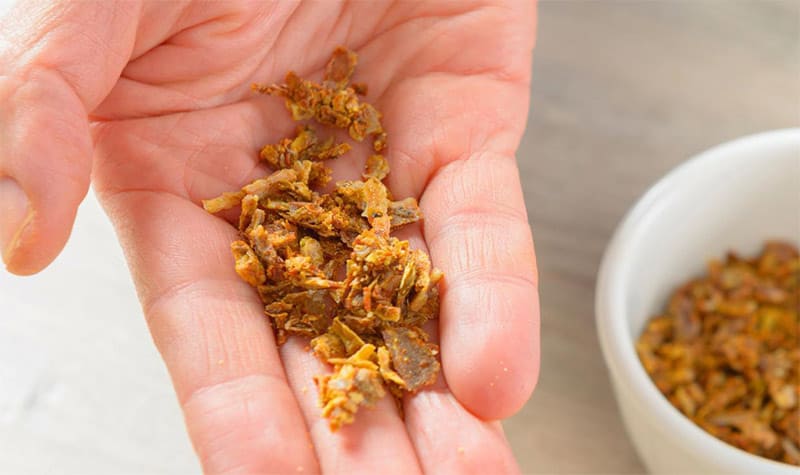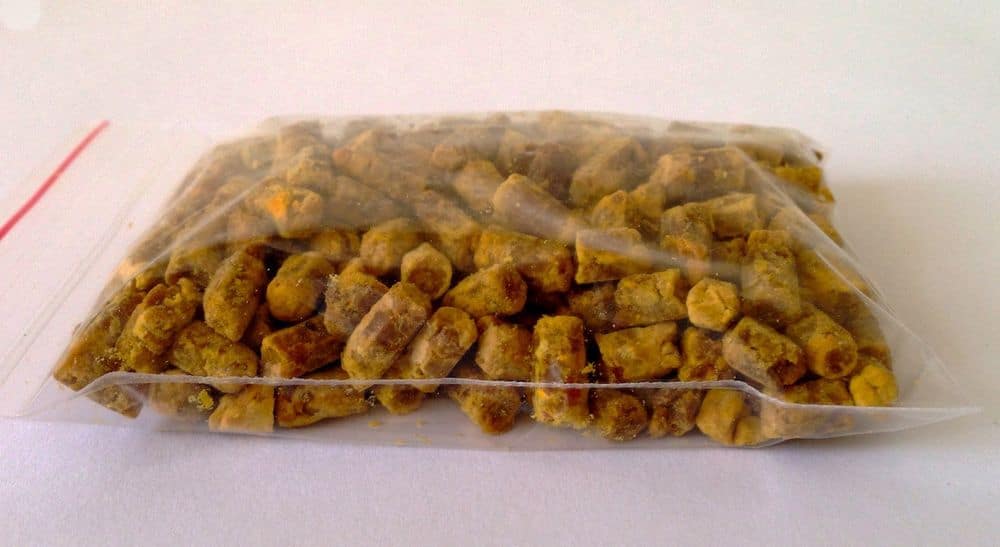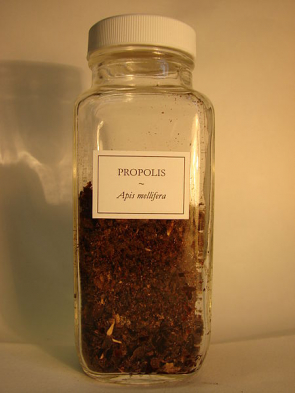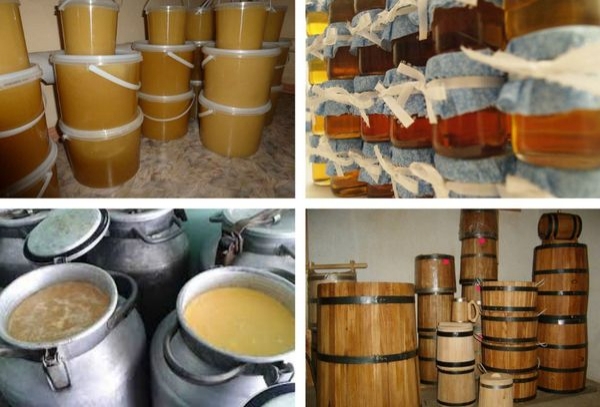Shelf life of propolis
Experts do not advise using bee glue to treat ailments if it has expired. Today, in pharmacies and specialized stores, the product is presented in different forms: dry, in the form of balls, alcohol tincture or ointment. Each of the types has its own shelf life.
Dry natural
The glue in solid form has the longest shelf life, which varies from 5 to 10 years. In this case, it is necessary to create the following conditions for it:
- stable temperature indicators in the room within + 20 ... + 25 ° С;
- dry, dark place, reliably protected from the sun's rays and sudden temperature fluctuations;
- the room should not contain extraneous odors, stored chemicals, and even more so household chemicals or fertilizers;
- it is recommended to wrap the substance in dry form for storage with parchment and place it in a container made of wood.

In balls
For ease of use and safety, propolis is rolled in the form of small balls or original sausages are made from raw materials. At the same time, such balls are packed in parchment or waxed paper, or they are placed in a dark glass container. During storage, the main thing is to prevent contact of the substance with air, so the container is tightly closed with a lid.
Important! When storing propolis in a closet or pantry, you should make sure that there are no substances with a strong aroma nearby that can easily absorb the product.
For storage of propolis balls, a dry, cool, dark place with temperature indicators no higher than + 25 ° C is suitable. The pantry will be the best place in the apartment. The kitchen is considered not the best location for the product, since the temperature inside is not stable.
Due to the switched on stove and oven, the temperature indicators jump up and down, the humidity of the air also varies, which has a negative effect on the state of the bee glue. In the form of balls, with the organization of the necessary conditions, the substance is able to retain its useful qualities for 5-7 years.

On alcohol
Since the propolis tincture contains alcohol, it can serve in such a consistency for a long time. In this case, the conditions in which the alcoholic tincture should be located are similar to how the product is kept dry.
In this case, you need to emphasize that the storage place should be inaccessible to small children.
Important! When storing propolis in the pantry, the room should be regularly ventilated.
Experts recommend pouring the infusion into a container made of dark glass, and placing it in a dark room (closet, closet), in which stable temperatures and average humidity indicators prevail. In the form of alcoholic infusion, propolis can be used for 4–5 years. The use of undiluted infusion is strictly prohibited. For ingestion, it must be diluted with plenty of water.

Ointment
Another form of propolis is an ointment, which is recommended to be kept in a dry, cool enough and dark place, at a temperature of + 15 ... + 22 ° C. The container with the ointment must be located away from direct exposure to sunlight, high humidity and sudden temperature fluctuations. Subject to all storage conditions, the shelf life of the store product is 6-8 years. If the ointment is prepared with one's own hand, then its shelf life does not exceed three months.
Important! Propolis in its pure form is stored much longer than ointments and tinctures prepared from it, therefore experts recommend not to buy products based on bee glue with a large supply, but to purchase only the necessary dosage.
Rules for storing the product at home
Compliance with the following recommendations will allow you to preserve the pleasant taste and useful properties of the product:
The storage area for propolis should be dry, warm and clean. The air temperature should not exceed 25 ° C. It is forbidden to place products with a sharp specific smell next to propolis
With such a neighborhood, the glue will not only absorb unnecessary aromas and volatile substances that shorten its shelf life, but also attract the attention of insects, rodents, and pathogenic microorganisms. Bars and pieces of glue must be wrapped in parchment or polyethylene, and then put in a clean and dry glass container (a wooden box will do as well)
It is better if the glass is dark and the lid is worn in.
- At home, the pantry will be the best place to store the glue. Changes in humidity and temperature too often occur in the kitchen, which will not benefit propolis.
If the rules for keeping the product for some reason were violated and propolis has lost its original appearance, but its shelf life has not yet expired, you should not get rid of the substance. It is not necessary to use it inside, you can get by with medicinal lotions, compresses and baths.
In the conditions of an apartment or house, several places can be noted where consumers most often save propolis: a refrigerator, a pantry or an ordinary kitchen cabinet.
In fridge
While most consumers prefer to keep bee glue in the refrigerator, this is not a suitable storage location. The fact is that at low temperatures the product loses its density and elasticity, and high humidity in the refrigerating chamber quickly negates all its medicinal qualities.
In the closet
Kitchen cabinets are considered not the best place to preserve the product. Even if they are not exposed to direct sunlight and light, they are not protected from sudden temperature fluctuations, which have a negative impact on the quality of the adhesive.
Did you know? Even when boiled in water, the product is able to retain all its medicinal properties for one hour.
In the pantry
Experts agree that an ideal place in an apartment for the preservation of bee glue is a pantry, in which low, stable temperatures and an average level of humidity are maintained. The main thing is that the room is free of various garbage, rubbish, there are no household chemicals, substances and products with pronounced odors.
Like any other substance, pure beeswax will be stored for a long period of time only if all storage conditions are met.
Lighting

The shelf life of solid propolis also depends on the container. It is necessary to select a reservoir that will ensure the protection of organic matter from direct sunlight. It should be isolated from places where chemicals are stored.
Humidity
Humidity is an important indicator of the microclimate. To ensure safe storage conditions, the humidity should be at 65%. It is not recommended to store propolis in the refrigerator because of the high humidity. In addition, the density and composition of the substance changes, which negatively affects the beneficial properties of the product.
General rules
Propolis, including all beekeeping products, have the strongest biological potential. To keep it at home, you must adhere to the following general rules:
- Avoid exposure to ultraviolet radiation. Sunlight has a detrimental effect on organic compounds. With prolonged irradiation, they are destroyed and lose their properties. Therefore, it is necessary to store propolis in any form in dark dishes or boxes, in a room where the sun does not penetrate.
- Observe the humidity regime. Despite the fact that propolis is composed of oily compounds, resins and waxes should not be exposed to high humidity or excessive dryness. The optimum humidity in the room should be in the range of 40-60%. Deviations from these parameters should be compensated for by the tightness of the package and regular visual control of the preservation.
- Do not expose to high temperatures. Propolis withstands freezing well without loss of properties. But it does not react well to sudden changes in temperature.It is optimal to store it indoors where it is stable and does not rise above 25 degrees.
- Avoid the proximity of substances with a strong odor or hazardous compounds. Propolis has the property of hygroscopicity and actively absorbs all aromas and vapors from the environment. If you place it next to toxic substances, fertilizers, chemicals, spices, perfumes - all their properties will very quickly become not the most pleasant addition to the medicinal product. Therefore, it must be stored in relative isolation.
The refrigerator is not suitable for storing dry propolis for a number of parameters: high humidity, the inability to isolate from food, the risk of a sharp change in temperature. The best choice would be a pantry or a closet that performs its function.
During storage, propolis must be regularly inspected and checked so that its visual characteristics do not change. If changes appear in the appearance, then the storage mode does not correspond to the required one, and it is necessary to correct it.
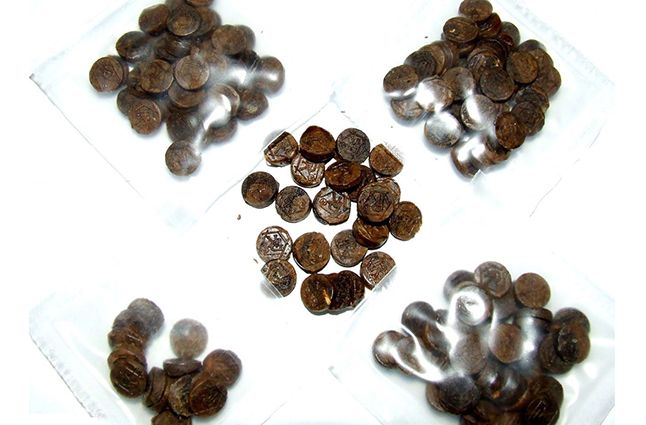
Storage of propolis
How to store it correctly?
To prevent various impurities, dirt and harmful substances from getting into propolis, it is necessary to very carefully approach the issue of its storage. Everything should be sterile, even sprinkle it on parchment or paper so that it does not come into contact with the table surface once again.
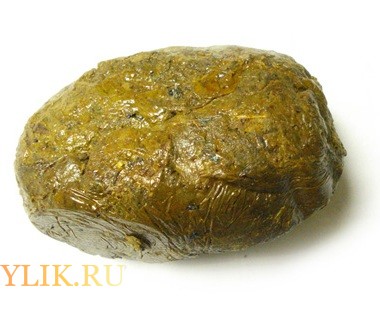
Unacceptable!
It is unacceptable to keep propolis from honey next to poisonous substances, poison for pests, pesticides and substances that emit a strong and strong odor. The room should not be too hot and light, dampness is also a strict taboo.
Packaging and utensils
Usually propolis from honey is packed in dry paper, parchment, sometimes in plastic bags. Then it is folded into dry and clean glass containers or plywood boxes. For added convenience, propolis is rolled up in lumps. It is best to choose tinted glass dishes with a tight-fitting lid. Excessive light can destroy the beneficial qualities of the product.
Premises
The room in which it is kept must be well ventilated. With long-term storage, the composition of bee glue may change slightly, but its antibacterial properties will remain unchanged, so you can take it and not be afraid - it will help in any case.
Fridge
Many people mistakenly believe that there is no better place to store than a refrigerator. This is a common misconception. When frozen, bee glue begins to crumble, and excessive humidity, which cannot be avoided in the refrigerator, will destroy all healing effects. In addition, very often we keep meat, fish, vegetables in the refrigerator, which spread their strong and eating smell.
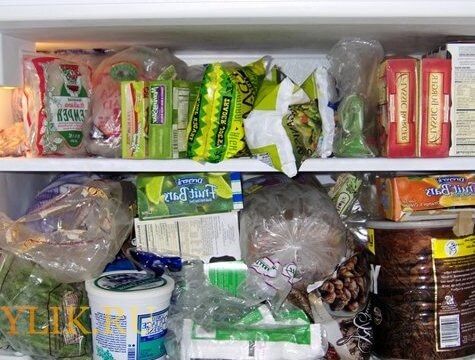
Wall cabinets
It is not recommended to keep propolis from honey in kitchen cabinets. Very often they are located next to a gas stove, so the air temperature constantly jumps. This is not good for our beekeeping product.
Pantry
The ideal option would be to store propolis in a closet. It is dry, dark and free from excessive moisture. The main thing is that there is no rubbish and debris.
How to store alcoholic tincture?
Alcohol tincture has many beneficial properties. It treats inflammation of the mouth, larynx and nasopharynx. Taking it inside you can get rid of the flu, relieve various inflammations, she helps with stomach ulcer and is a very effective tool in the fight against tuberculosis. Due to the alcohol content, it retains its excellent properties for a very long period, but this is all guaranteed only by the correct storage conditions.
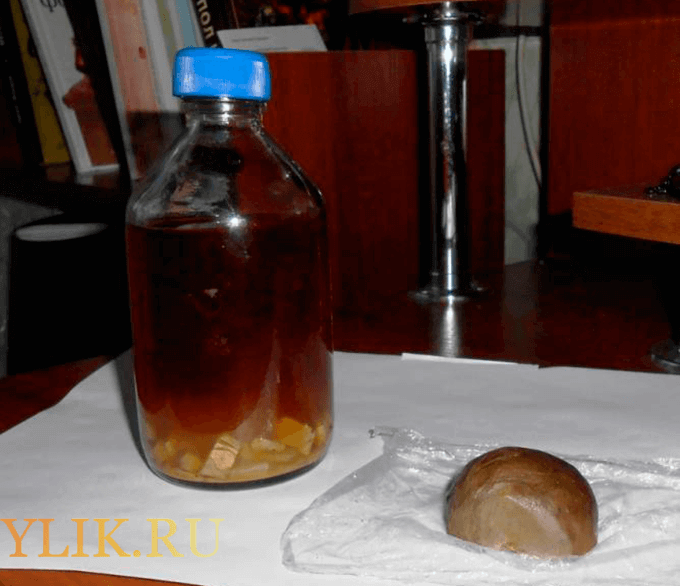
Conditions
The conditions for keeping alcoholic propolis tincture are practically no different from the storage conditions for dry matter. It should be borne in mind that dry bee glue can last much longer, while alcohol tincture retains its properties for only three to four years.You need to keep the infusion in a cool and dark place, out of the reach of children.
Application
This medicine can be taken by people of all ages, but the dosage and method of use should be carefully monitored. If you doubt that the infusion is still fresh, then you need to limit yourself to compresses and lotions, without using it inside. For children and pregnant women, this tincture in its pure form is not recommended; inside it can only be taken by diluting it with milk or honey.
In no case should alcohol infusion be taken undiluted, as you can get burned. You can dilute it with plain water, the main thing is filtered.
What to store
A little attention should be paid to the selection of suitable containers. Some materials may not be environmentally friendly, as they release toxic substances when they interact with food. You should lay out the balls of dry natural propolis so as to eliminate the possibility of sticking. It is recommended to wrap each of the balls in its own packaging.

Wax paper
Usually propolis rolls into lumps of 100-150 g of any shape. The selection of the desired shape depends on the preferences of the beekeeper. Waxed paper is considered one of the most ideal options for dry propolis wrapping.
Album sheets
There are many options that are ideal for wrapping propolis dry, however parchment paper is the most commonly used. You can also replace it with landscape sheets. When choosing a material, you should avoid colored napkins, paper with letters printed on it.
Food foil
Food foil is an environmentally friendly material that is recommended for use in the food industry. Aluminum is non-toxic and does not emit harmful substances when it interacts with food. It allows you to maintain beneficial properties for a long period of time, depending on the shelf life of propolis.
Plastic bag
Cellophane products made of polypropylene, polyethylene, polyesters are particularly easy to use, which is one of its important advantages. Disadvantage - they can release toxic substances. Therefore, before using a bag that is intended for wrapping propolis in a dry form, make sure that it is environmentally friendly.
Darkened glass containers
The advantage of dark glass containers is the protection of the bee product from UV rays. In addition, tanks should be selected that will close tightly. Make sure that the lid is closed completely beforehand to limit the possibility of foreign odors getting inside the container.
Basic storage rules
If you want to use propolis for several years, then you should follow these recommendations:
- 1. Avoid getting on the propolis dust and any impurities. When preparing the substance for storage, try to avoid contact with the table. It is best to spread out clean parchment. Only how can you ensure the long shelf life of propolis.
- 2. Store propolis only in a place where there are no substances with a strong odor. You cannot keep it next to pesticides or fertilizers.
- 3. The shelf life of this medicinal substance is significantly reduced by exposure to sunlight, so keep it in a dark place. In addition, you need to monitor the humidity in the room. In this case, the air temperature should not exceed 25 ° C.
Where is the best place to store such a beekeeping product?
Many beekeepers believe that keeping propolis at home is best kept in the refrigerator. And this is their main mistake. At low temperatures, the substance quickly loses its natural density. In addition, the air humidity in the refrigerator is too high. The influence of these factors leads to the fact that the substance quickly loses its medicinal properties.
Kitchen cabinets are also not the best place to store propolis. They are too close to a gas or electric stove. In this regard, there are sharp jumps in air temperature. As a last resort, you can put it in the drawers of the lower cabinets of the kitchen unit. But only in those that are at a sufficient distance from the stove, sink and trash can.
But in this case, it is impossible to accurately answer the question of how long such a tool can be stored.
At home, the pantry becomes an ideal place to store propolis. It is there that it is dry and dark enough for all the miraculous qualities of this substance to be preserved. The main thing is to make sure that the pantry is clean and there are no strong smelling substances. Periodically, the pantry needs to be ventilated.
Correct packing
It is not enough to properly prepare such a beekeeping product for storage, you also need to choose the right packaging. For these purposes, parchment or blank paper is suitable. Never use a newspaper, as harmful substances and paints can penetrate into propolis.
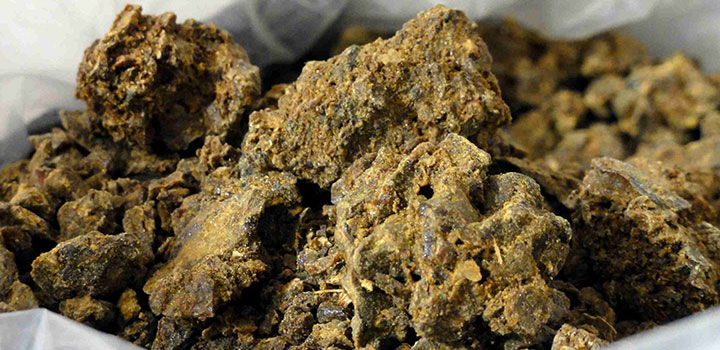
You can also use a plastic bag; the propolis wrapped in paper must be placed in a glass container. Keep it clean and dry. You can also use a wooden box. For more convenient storage at home, propolis can be rolled into small balls. The lid of the selected container must close tightly.
Choosing a storage location
Where to store propolis correctly, if not in a dry, clean and dark room that is tightly closed. Given the beneficial substances of the bond, which can change under the influence of certain factors, a little more time should be devoted to this issue. Still, the shelf life of propolis is several years, not a day or two.
Fridge
The question is often asked whether propolis will be stored in the refrigerator, taking into account the preservation of the beneficial properties of essential oils and resins. However, it is not recommended to do this due to the high humidity and commercial proximity. A variety of foods with less or more intense odors can be stored in the refrigerator. All these factors can negatively affect the beneficial substances of beeswax.
Pantry
How much bee product is stored in a darkened pantry? Make sure that the temperature regime will be maintained at the same level - at least 15 degrees Celsius. There are no other contraindications for saving bee products in a darkened pantry.
Before storing it, it is recommended to divide propolis into small portions and wrap each one in an individual package.
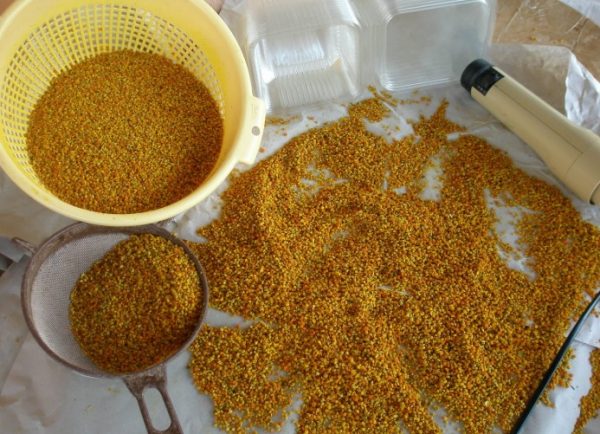 It is recommended to divide propolis into small portions before storing.
It is recommended to divide propolis into small portions before storing.
This could be:
- parchment;
- foil;
- cling film;
- paper bag;
- plastic bag.
Do not wrap the product in cloth, newspaper or magazine paper.
Packages with propolis are placed in a clean dry container - mold will not develop in it. A ceramic or tinted glass jar with a well-screwed lid will work. If there is no suitable dish, arrange the propolis in bags, tie it and send it to a wooden box or cardboard box.
The correct storage location for propolis should be clean, shaded, dry and cool.
Kitchen Cabinet
The cabinet in the kitchen may well meet the listed requirements, this is affected by its location.
Be sure to read:
What is the shelf life of rolls and sushi after cooking?
Propolis should not be found:
- near heat sources (batteries, stove, oven), where the temperature is several degrees higher than in the whole room;
- near the sink, sewer;
- in a compartment with a trash can, household chemicals, products with a pungent odor.
Fridge
An additional argument against such storage is strong smells of meat, fish and other products lying in the refrigerator.
Pantry, closet
The pantry is perfect for storing propolis - there it will be protected from the sun, heat, moisture.
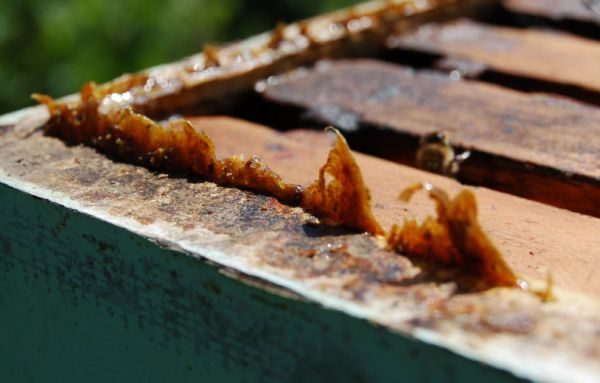 The correct storage location for propolis should be clean, shaded, dry and cool
The correct storage location for propolis should be clean, shaded, dry and cool
But the premises should not be used for storing old things - sources of dust. And do not forget to air the pantry weekly, otherwise the extra smells will "start".
Where to store propolis? As we have already figured out, you can only store in a cool place.
- A pantry is ideal for us. It's cool, dark, and dry. This will be the best option.
- Kitchen cabinets, shelves, drawers will not work for us. Since we constantly cook in the kitchen, the temperature there is not constant. Which will also have a detrimental effect on our beekeeping product.
How to store propolis in the refrigerator and whether it can be done, let's consider separately.
In fridge?
Contrary to all opinions, propolis cannot be stored in the refrigerator. There he will quickly lose all his healing properties.
- The humidity in the refrigerator is high. Which will spoil all the healing properties of the product.
- Due to the low temperature, it will lose its healing properties and will crumble.
- There are many sources of extraneous odors. Which is also unacceptable when storing bee glue.
The only exceptions are propolis oil. for the rest of the remedies, tinctures, ointments, the conditions of the refrigerator will be disastrous.
Where to store ointment and oil
The composition of propolis ointment may include various additional components:
- vegetable oils (olive, flaxseed);
- wax;
- honey;
- petrolatum;
- butter;
- herbal decoctions.
Ointments with honey retain their useful properties for a long time, the component is a good preservative. Products based on petroleum jelly or wax have long shelf life. Ointments with vegetable or butter are best prepared for 4-5 applications.
Propolis oil is a special product for external use. In glass, it retains its beneficial properties for 3 months. It is sometimes sold in plastic bottles. The storage time of propolis in the form of oil in plastic is reduced to 30-45 days.
Basic tips for saving
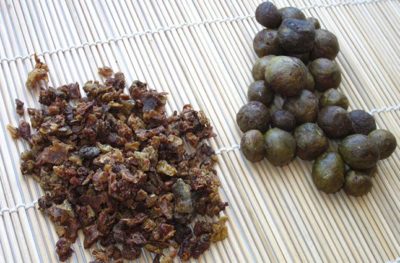
In order for propolis to be used for a long time, the following basic rules must be adhered to during storage:
- Ultraviolet. Sunlight has a bad effect on propolis, prolonged exposure destroys its beneficial properties. Therefore, to store propolis at home, you need a room where the sun's rays do not penetrate. It is better to store it in dark dishes or in boxes.
- Humidity. The optimum humidity should be in the range of 40-60%, if there is a deviation from these parameters, then there should be compensation in the form of visual inspection and sealed packaging.
- High temperatures. Propolis withstands freezing well, but it reacts poorly to sudden changes in temperature. Better when the temperature does not rise above 25 degrees.
- Strong odor and hazardous compounds. Propolis has an interesting property: it absorbs all odors and vapors from the environment that surrounds it. If you store propolis near substances such as perfumes, chemicals, spices, fertilizers, then it will quickly absorb their aromas. Therefore, storage must be isolated.
Solution dosage
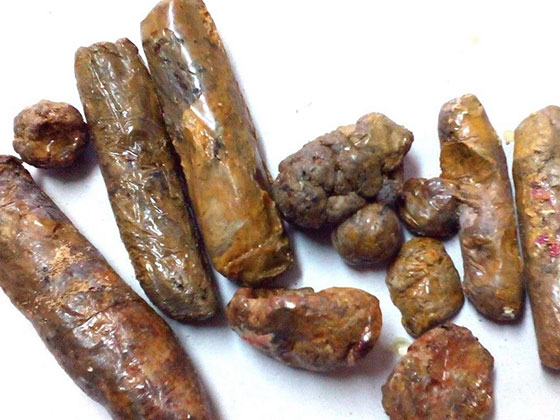
For various diseases, their own consumption rate applies. How to drink propolis:
- With a cold. For instillation into the nose, as a rule, no more than two drops are used three times a day. The course of treatment should be at least ten days. Further treatment is stopped and a break is taken.
- How to take an aqueous solution of propolis for bronchitis? To treat the upper respiratory tract or bronchitis, you will need propolis inhalation. To do this, steep boiling water is brewed and a small amount of alcohol or water tincture is poured into it. The patient bends over the container and breathes in steam. With the help of heat, phytoncides easily penetrate inside and act on organ tissues.After the procedure, it is also recommended to consume a tablespoon of the infusion.
- Ear infection. With the help of propolis tincture, you can cure acute or chronic otitis media, mild hearing loss and other ear problems. To do this, you will need an alcoholic tincture of propolis diluted in water. Before applying the compress, the ears should be cleaned with a cotton swab dipped in hydrogen peroxide. This procedure is recommended to be carried out twice a day. Do not keep a wet tampon in your inflamed ear for too long. Two or three minutes is enough.
- How to drink propolis while treating thyroid diseases? In such cases, the propolis infusion is taken orally in an amount of no more than one tablespoon three times a day. Doctors advise to drink the drug thirty minutes before meals. In order for the composition to work, you will need a daily intake for one month. Further, the treatment is interrupted and continued only after six months.
- Diabetes. Experts recommend taking bee glue with milk. For this, half a teaspoon of the tincture is combined with half a glass of milk and consumed before meals. It is used in the treatment of type 2 diabetes. Usually, the course of treatment is one month, while in the first two weeks the dosage should be less than in the next fourteen days.
- The use of an aqueous solution of propolis in gynecology. Diluted tincture can be done by douching or washing. It helps to cope with thrush or cervical erosion. In order to get rid of the fungus, proceed as follows. One tablet of "Furacilin" is diluted in a glass of water and douching is done. Next, a cotton swab is moistened in a solution of bee glue and inserted into the vagina. It is advisable to do this procedure late in the evening before going to bed. If this is not possible, then the tampon can be inserted during the day. Doctors advise douching again after removing the tampon.
- To prevent atherosclerosis and strengthen blood vessels, a course of treatment of one and a half months will be required. During this time, consume two tablespoons of the composition per day.
- In case of poisoning, accompanied by diarrhea and vomiting, large doses of propolis will be needed. The aqueous tincture is diluted in boiled water in a ratio of two tablespoons per liter of liquid. Two liters of the composition should be drunk during the day. This tool not only neutralizes harmful microflora, but also restores water balance and saturates the body with lost microelements.
- Diabetes. Infusion of propolis can improve the condition of patients with diabetes mellitus. For this, bee glue, dissolved in water, is consumed in an amount of fifteen milliliters no more than three times a day. The duration of the course is usually twenty-five or thirty days. To avoid addiction, treatment should be interrupted. Only after a few months can you continue taking the drug.
Do the same in the treatment of hemorrhoids. First, douching is carried out and only then a tampon soaked in infusion is inserted. And also with the help of a solution of bee glue, you can improve the condition of the hair and skin of the face.
Preparing propolis for storage
Proper storage preparation is carried out immediately after the tie is harvested. The goal is to preserve the effectiveness of natural material used to prepare various propolis-based products. The best time for harvesting is considered to be summer (from early June to late August).
TO
only high-quality bee glue is allowed for storage. Signs:
- structure -
dense, viscous, reminiscent of softened wax; - color - mixing
brown and gray shades, with greenish, brown blotches (the more
an admixture of pollen, the lighter the bond); - aroma -
rich, bright, with resinous, ethereal notes; - taste -
specific, with bitterness, pungency.

Recommended
selection rule - after sifting, take the crop in large fractions
It is important to leave
clean bee glue, free from adhering dirt and dust particles, other
impurities. If necessary, large pieces are crushed using an apiary centrifuge
If
collecting bonds - the purposeful work of the beekeeper, it is recommended to place on top
honeycomb frames canvas. The main thing is to leave a gap of 2-3 mm. Educated
the bees will quickly seal the gap with glue. Cleaning off propolis requires careful
disassemble the scraps. The collection is carried out in the period of approaching winter (in November).
Impregnated
bee glue leaves the laps in a prepared dry place until arrival
frost. To make it easier to separate the tie, the canvas is advised to be placed in
refrigerator for 30-40 minutes.



